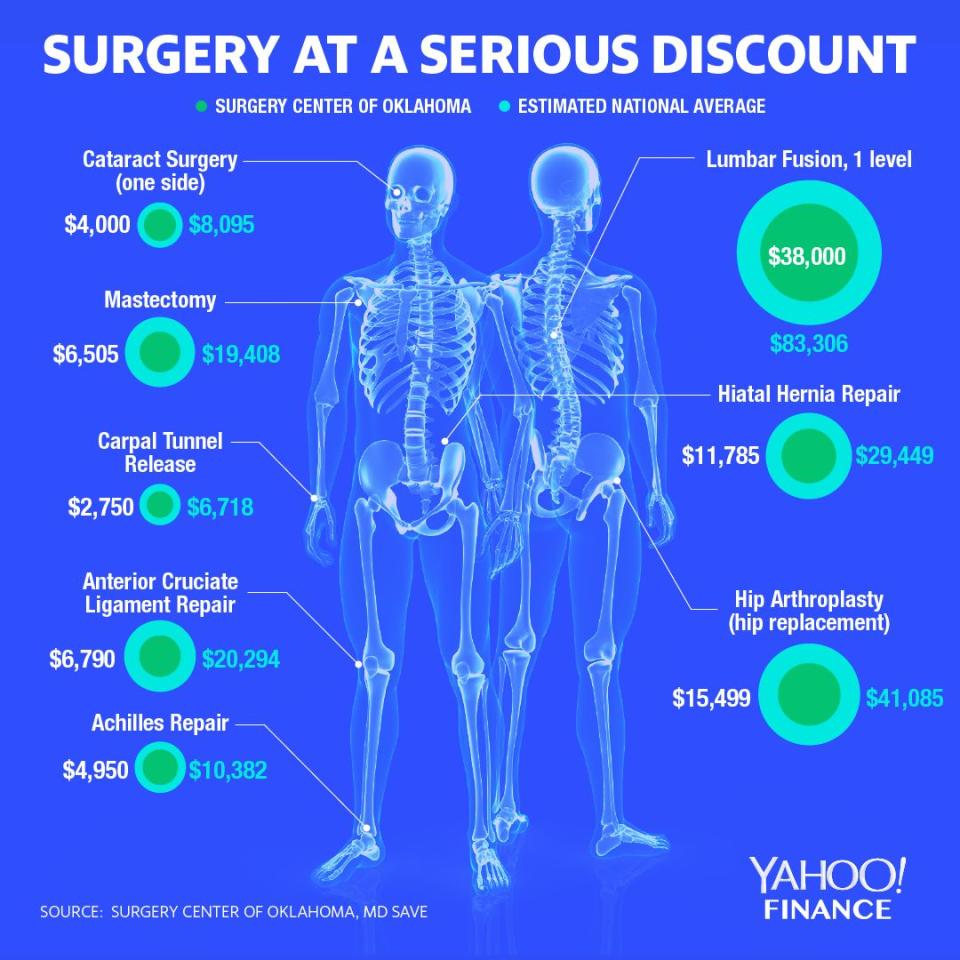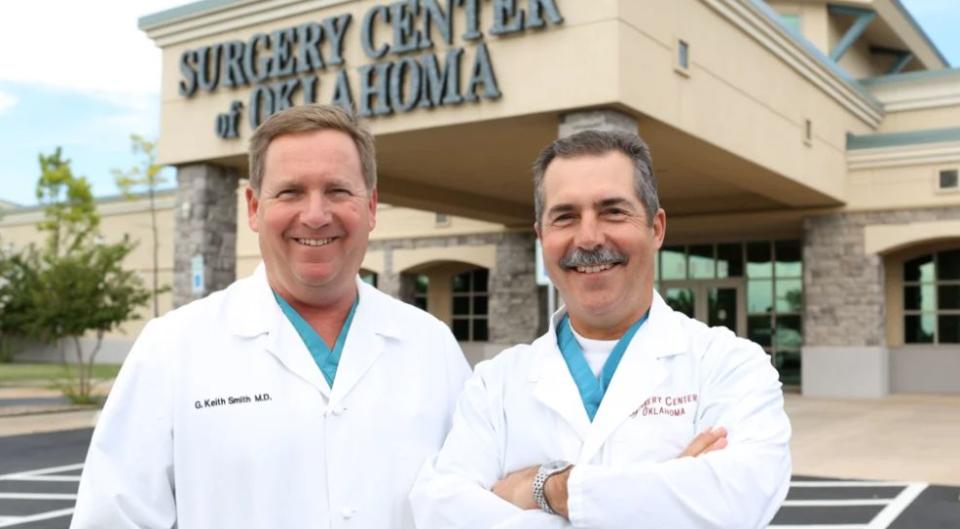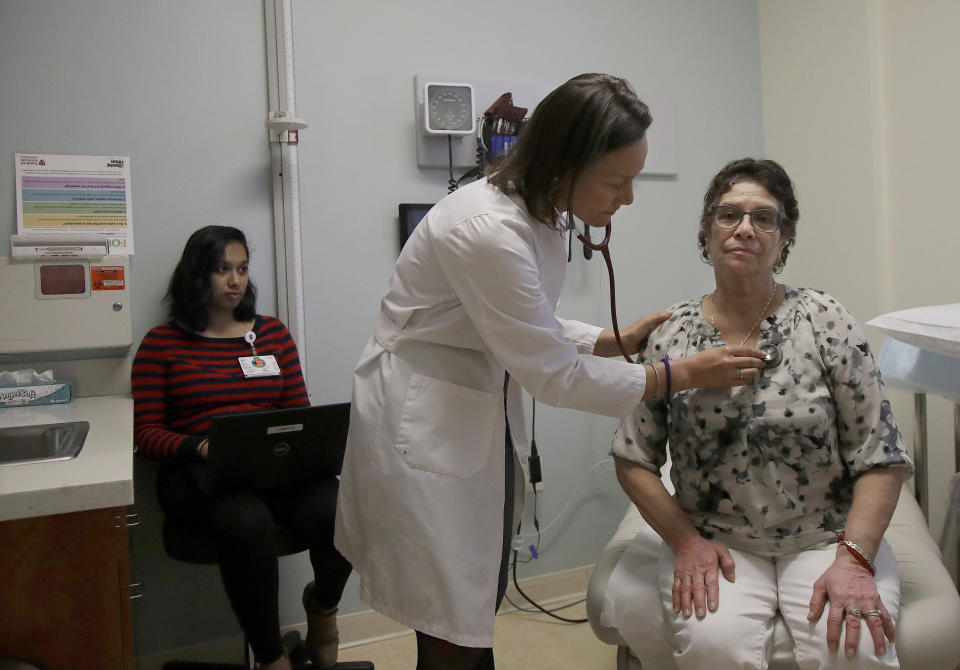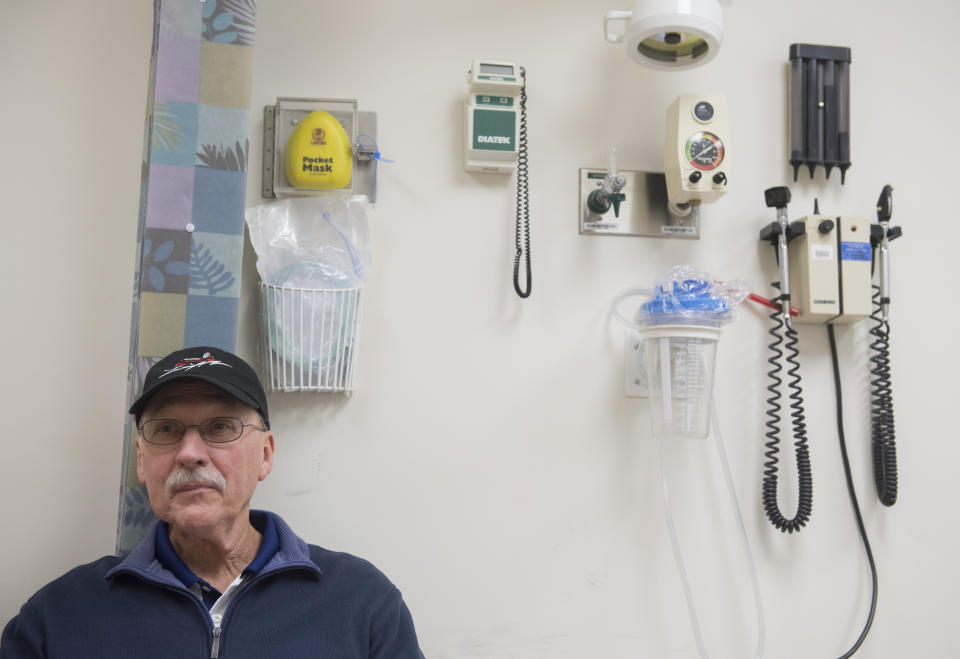'The system is broken': These doctors practice a less pricey form of health care
In a country where citizens resort to crowdfunding to pay for their medical bills and politicians can’t agree on the right kind of health care system, a pair of doctors decided that enough was enough.
“We both started despising what was going on financially with the patients, cause when you look at the bankruptcy statistics — medical bankruptcies for patients now — it’s egregious,” Dr. Steven Lantier told Yahoo Finance (video above). “The average American cannot afford health care today, so we believe the system is broken.”
Lantier and Dr. Keith Smith, both anesthesiologists, partnered up in 1997 to establish the Surgery Center of Oklahoma. Their organization does not accept insurance and instead promotes price transparency, which involves listing prices of various operations on its website.

Smith said that their prices have more-or-less stayed the same over the last 20 years, with the exception being the three times that he lowered certain prices.
“The argument that there’s this spiraling cost of health care — we don’t buy that,” he said. “We think that there are spiraling charges, almost all of which are the result of mandates from government and the extent to which the crony opportunists have taken advantage of that.”
Generally, the two charge patients the flat rate of a surgical procedure with an additional 10-15% margin for profit, bypassing additional costs that come from the involvement of hospitals and insurance companies.
‘The mainstream in health care is completely unplugged’
Health care spending has increased nearly 6-fold on a per capita basis over the last 40 years when adjusted for inflation, according to the Peterson-Kaiser Health System Tracker, going from about $1,800 In 1970 to about $10,740 in 2017.
According to a recent Kaiser Family Foundation (KFF)/LA Times survey, “40% of those with employer coverage report problems paying medical bills or difficulty affording their premiums, deductibles, cost sharing, or an unexpected bill in the past year. Half (51%) say they or someone in their family have skipped or postponed needed care or medication or relied on home remedies instead of seeking care because of the cost.”

Smith and Lantier were inspired to reduce those costs.
“It’s the strangest thing — patients prefer to receive high quality care and not be bankrupted,” Smith said sarcastically. “It sounds radical to say, ‘Here’s what we do and here’s how much it is.’ The mainstream in health care is completely unplugged from the actual cost of the care.”
The Surgery Center of Oklahoma shares the same philosophy as the Phia Group, which describes itself as a provider of health care cost containment techniques — in response to exorbitant health care costs.
“Different hospitals and providers charge different amounts for the same service,” Ron E. Peck, senior vice president and general counsel for the Phia Group, told Yahoo Finance. “And even the same provider charges different amounts for the same service, depending on who the payer is, the plan, the insurance, whatever. And that’s before the discount is applied.”
So, Peck continued, “a lot of payers, they’ve become kind of savvy to this, and they’re less focused on who is in network and who is out of network, and now they’re starting focus more on what that initial charge amount is. Just because I’m getting a discount doesn’t mean I’m getting the best price. If this one facility is going to charge $500 without a discount, that’s better than this facility that charges $1000 and gives me a 30% discount. I still save money with the $500.”

Lantier described what he and Smith do as “very disruptive” to the health care industry.
“The insurance companies would like for us to be out of this business,” Lantier said. “The hospitals would like for us to be out of this business. There have been several things they’ve done in the past trying to make it very uncomfortable for us to continue what we do.”
Lantier added that “we're working in a very corrupt environment where the big hospital systems and the insurance carriers, essentially, work as a cartel attempting to keep prices high and actually not giving any thought to quality, as they actually make more money when mistakes are made.”
‘The disaster … is the handiwork of Uncle Sam’
Smith blamed the federal government for the nation’s healthcare woes.
“The reason the system is broken is that anything the government gets their hands on doesn’t work,” Smith said. “The disaster of the U.S. health care system is the handiwork of Uncle Sam.”
In order to alleviate the issues over health care costs, some politicians have proposed their own solutions. One proposal is “Medicare for all,” notably supported by presidential candidate Sen. Bernie Sanders (I-VT).

Through Sanders’ Medicare for All, Americans would receive universal health coverage — although it would require at least $3 trillion a year in new government revenue.
Even then, Smith doesn’t see a government response as the right answer.
“Medical service delivery is such an important part of our lives that it shouldn’t be trusted to systems that we know are failed,” Smith said. “It certainly shouldn’t be entrusted to the most corrupt invention of mankind, and that’s government. The only way, really, to ethically and rationally render medical services with high quality and a reasonable price is the free market system.”
At the end of the day, when it comes to this version of direct primary care, Smith argued that “it really is a lesson into how capitalism — for all the bruises that name and reputation has received — is truly the only ethical way to deliver services, particularly medical services.”
Adriana is an associate editor for Yahoo Finance. Follow her on Twitter @adrianambells.
READ MORE:
What is direct primary care? An alternative form of health care avoids insurance altogether
Health care CEO: Medicare for all 'would just collapse the system'
Ex-CBO director: Obamacare 'is working' and we've 'wasted almost a decade' trying to dismantle it
As Trump waits on Obamacare, Americans list health care as top worry
Read the latest financial and business news from Yahoo Finance
Follow Yahoo Finance on Twitter, Facebook, Instagram, Flipboard, SmartNews, LinkedIn, YouTube, and reddit.

 Yahoo Finance
Yahoo Finance 